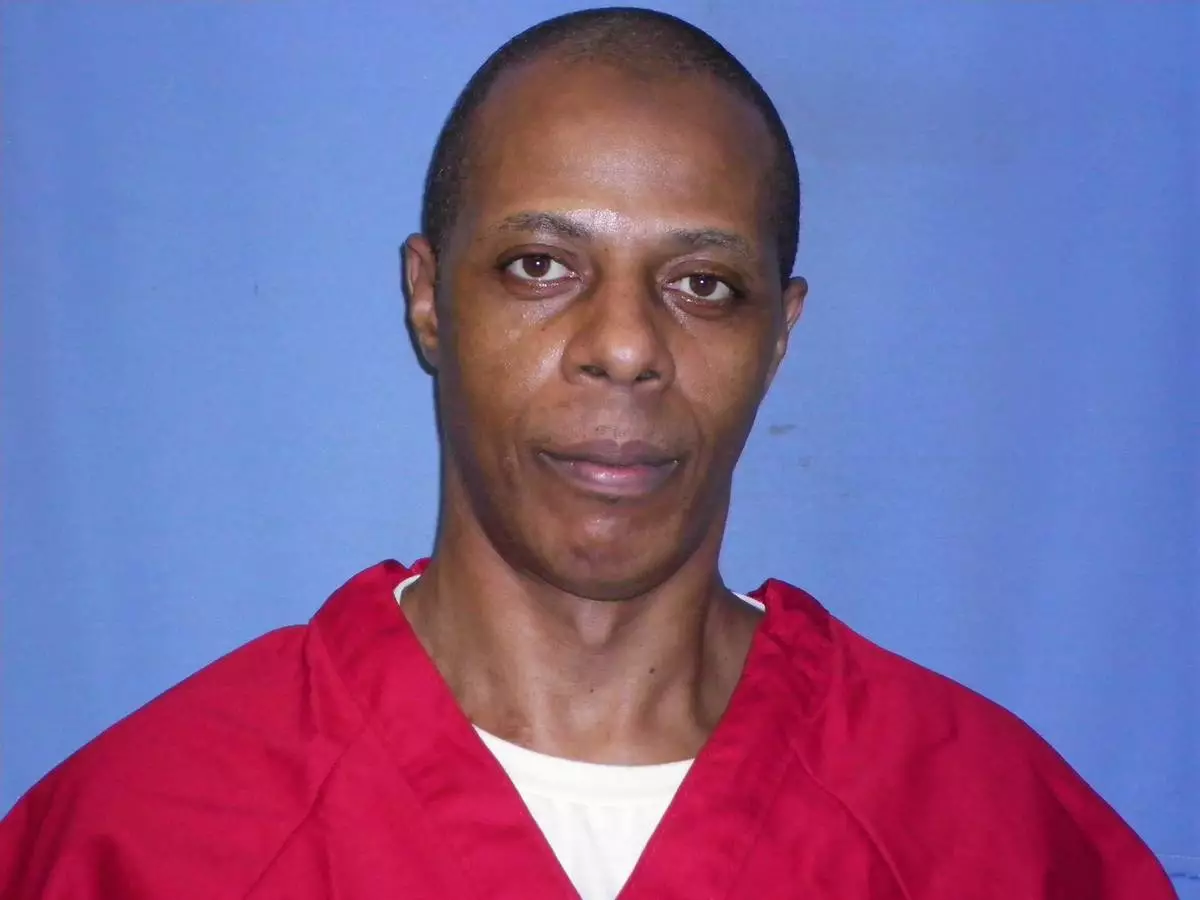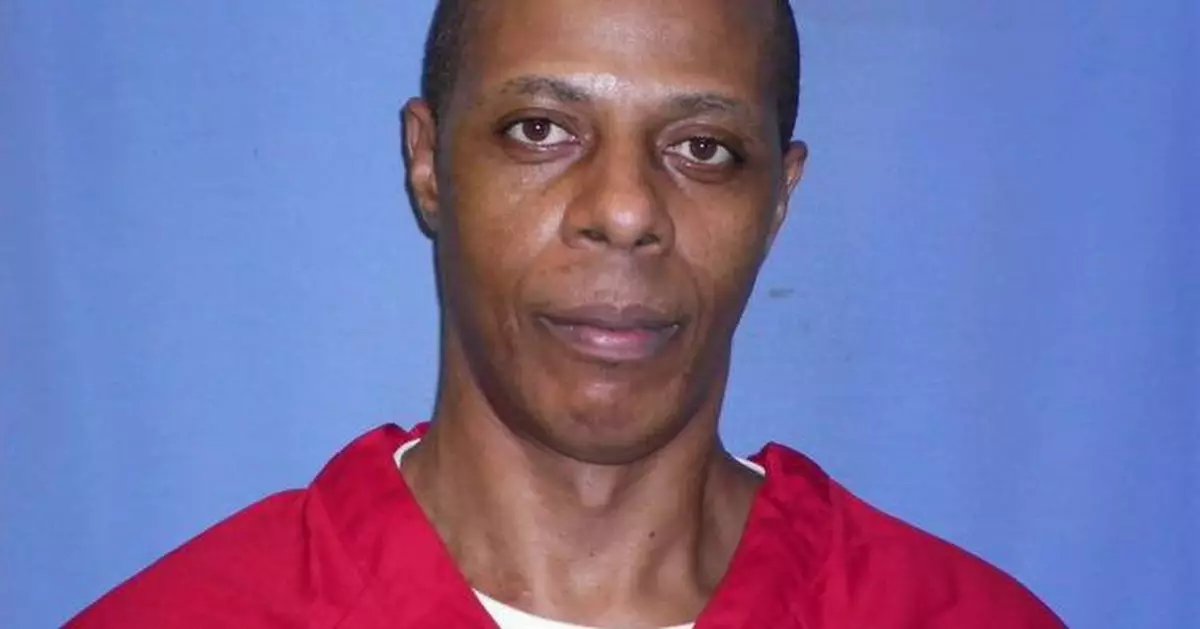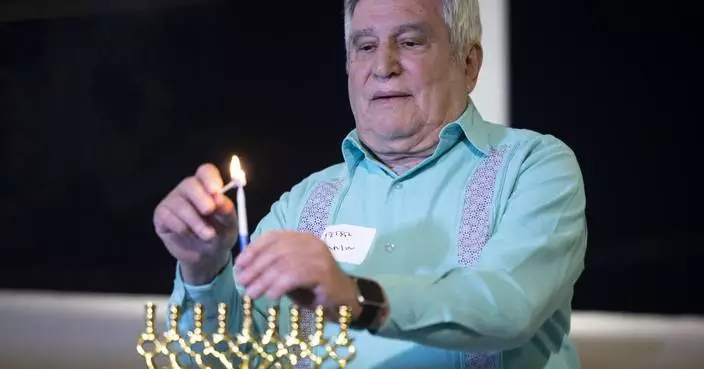JACKSON, Miss. (AP) — The Mississippi Supreme Court has denied the latest appeal by a man who has been on death row for 30 years after he was convicted of killing two college students.
The decision could clear the way for the state to set an execution date for Willie Jerome Manning, but his attorney said Tuesday that his legal team will seek a rehearing.
The court's majority wrote in a 5-4 ruling Monday that Manning “has had his days in court.” Dissenting justices wrote that a trial court should hold a hearing about a witness who wants to recant his testimony against Manning, 56, who has spent more than half his life in prison.
Manning's attorneys have filed multiple appeals since he was convicted in 1994 on two counts of capital murder in the December 1992 killings of Mississippi State University students Jon Steckler and Tiffany Miller. Their bodies were found in rural Oktibbeha County, and Miller’s car was missing. The car was found the next morning. Prosecutors said Manning was arrested after he tried to sell items belonging to the victims.
Krissy Nobile, Manning’s attorney and director of the Mississippi Office of Capital Post-Conviction Counsel, said Tuesday that the justices' majority ruling ignores "newly discovered evidence with the recantation of several key witnesses," including one who said in a sworn statement that she was paid $17,500 for fraudulent testimony.
“With the witness recantations and debunked forensic science, there is no evidence against Mr. Manning,” Nobile said. “There is no DNA, fibers, fingerprints, or other physical evidence linking Mr. Manning to the murders or the victims.”
Chief Justice Michael Randolph wrote the majority opinion rejecting Manning's request for a trial court hearing to determine whether witness Earl Jordan had lied.
“Petitioner has had more than a full measure of justice,” Randolph wrote of Manning. “Tiffany Miller and Jon Steckler have not. Their families have not. The citizens of Mississippi have not. Finality of justice is of great import in all cases.”
Nobile responded: “What measure of justice is served if the wrong man is put to death?”
Justice James Kitchens wrote the dissent.
“Today the Court perverts its function as an appellate court and makes factual determinations that belong squarely within the purview of the circuit court judge,” Kitchens wrote.
The Mississippi Supreme Court ruled decades ago that when a witness recants testimony, “the defendant/petitioner is entitled to an evidentiary hearing to determine whether the witness lied at trial or on his affidavit,” Kitchens wrote.
Manning has maintained his innocence and sought to have evidence in his case reexamined.
The latest appeal was based partly on Jordan saying he wanted to recant his testimony that while he and Manning were jailed together in Oktibbeha County, Manning had confessed to killing Steckler and Miller.
Jordan said in a sworn statement that he gave false testimony against Manning in hopes of himself receiving favorable treatment from Dolph Bryan, who was then sheriff of Oktibbeha County. Jordan wrote that he was “afraid to tell the truth” while Bryan was sheriff. Bryan left the job in January 2012.
In 2013, shortly before Manning was scheduled to be executed, the U.S. Justice Department said there had been errors in FBI agents’ testimony about ballistics tests and hair analysis in the case. Manning’s attorneys asked the Mississippi Supreme Court to stop the lethal injection, and justices voted 8-1 to delay the execution to allow the testing of evidence.
Manning’s attorneys asked an Oktibbeha County circuit judge for permission to send items to a more specialized lab. The judge denied that request, and the ruling was upheld by the Mississippi Supreme Court in 2022.

FILE - This April 2, 2019, booking photo provided by the Mississippi Department of Corrections shows death row inmate Willie Jerome Manning. (Mississippi Department of Corrections via AP, File)














